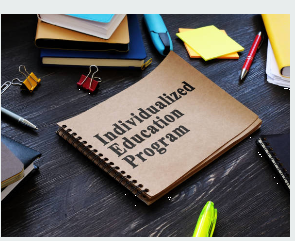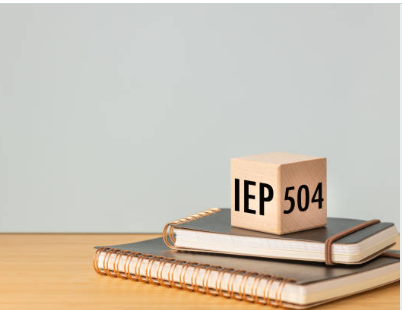
The Top 4 Wrightslaw Books Every Special Needs Parent Should Own
When you’re navigating the IEP process, information is power — and no one equips parents with better tools than Wrightslaw. Their books break down special education law in plain English and give you strategies you can use at the IEP table tomorrow.
Here are the four Wrightslaw books I recommend to every parent I work with, and why they deserve a spot on your shelf.

Understanding the 13 IDEA Disability Categories (and How to Protect Your Child’s Rights)
If your child struggles in school, one of the first questions you’ll face is:
“Does my child qualify for special education under IDEA?”
The Individuals with Disabilities Education Act (IDEA) defines 13 categories of eligibility for students ages 3–21. But the process isn’t simple:
Schools often misinterpret or misuse the definitions to deny services.
Some states (like Iowa) impose additional exclusions or tests not in federal law.
Many parents aren’t told they can list multiple disabilities (primary and secondary) to ensure full support.
Here’s everything you need to know, with references to federal law and state rules, plus language to use when schools try to block you.

The Ultimate Guide to IEPs and 504 Plans: What Every Parent Needs to Know (and What Schools Don’t Tell You)
If your child is struggling in school—academically, behaviorally, or socially—you’ve probably heard the terms IEP and 504 Plan.
But most parents, especially in our communities, are never told how these systems really work—or how schools use our lack of knowledge to cut services, delay help, or deny our children what they’re entitled to by law.
This guide will break it down in plain language:
What an IEP or 504 Plan is (and why your child might need one)
How to get one (even when the school stalls)
What to do once you have one—from day one through high school graduation
What your procedural safeguards really mean (and why you must read them)
How to document, escalate, and fight back when the school refuses to follow your child’s plan
And a step-by-step checklist so you can take action immediately

Parent Escalation Checklist: When to Take Your Fight Up the Ladder
Step 1: Before Escalation – Gather Your Evidence
Make sure you have the following in one folder (digital or binder):
Copies of your child’s current IEP or 504 Plan (and all past versions)
All evaluation reports (school and independent)
Progress reports and service logs (speech, OT, PT, academic supports)
Emails and meeting notes (documenting requests, refusals, and responses)
Any Prior Written Notices (PWN) the school has issued—or proof they failed to provide one (34 C.F.R. §300.503 requires it)
Behavioral data (incident reports, suspension letters, behavior plans)
Your log of missed services or noncompliance (dates, times, staff)

From IEP to Injustice: How Parents Can Stop the School-to-Prison Pipeline
For far too many children—especially Black and Brown students—the path from the classroom leads not to college or careers, but to courtrooms and incarceration.
This is called the School-to-Prison Pipeline, and if your child has an IEP or should have one, they’re at even greater risk.
Why?
Because when schools deny evaluations, ignore data, fail to provide appropriate learning, and keep parents in the dark, our kids don’t just fall behind—they’re punished for struggling, suspended, expelled, and often funneled into the juvenile justice system.
But it doesn’t have to be this way.
Maryland Families: How Mediation Can Get Your Child’s IEP Back on Track
When you and your school disagree about your child’s special education services, mediation offers a powerful tool to resolve conflicts without costly litigation. In Maryland, multiple avenues—community mediation centers and the state’s dispute resolution system—can guide you to fair, informed, and legally supported agreements.

Prior Written Notice (PWN): A Parent’s Tool for Clarity and Accountability
What is PWN (and Why Does It Matter)?
If you’ve ever left an IEP meeting feeling unclear about why a decision was made — whether a service was added, changed, or denied — you’re not alone.
That’s where Prior Written Notice (PWN) comes in. PWN is a formal, written explanation from your school district about any decision regarding your child’s identification, evaluation, placement, or services.
It isn’t just paperwork — it’s a tool that ensures:
You understand why a decision was made
You see the data and reasoning behind it
You know what other options were considered

When the School’s Evaluation Isn’t Enough: How Families of Color Can Request an Independent Educational Evaluation (IEE)
Why We’re Talking About IEEs
If your child was tested by the school — and the evaluation didn’t tell the full story — you’re not alone.
Many parents, especially parents of color, are told:
“Your child doesn’t qualify for services.”
“Their scores are average — nothing to worry about.”
“They’re just behind because of behavior or lack of focus.”
But what happens when you know your child is struggling, and the school’s testing doesn’t reflect what you see at home?
That’s where an Independent Educational Evaluation (IEE) comes in.

Maryland Parents — Don’t Sleep on Tax-Free Week
Back-to-school shopping in Maryland? Don’t miss Tax-Free Week from August 10–16. Qualifying clothes, shoes, and backpacks are exempt from sales tax — and yes, SPED parents, that includes the essentials your child actually needs. Save those coins and prep with purpose.





Welcome to The IEP Files – Exposing the Truth About Special Education
Welcome to The IEP Files, where we expose the truths, the barriers, and the battles that families face navigating special education.
This space was born out of lived experience—hours in IEP meetings, stacks of paperwork, emotional breakdowns, formal complaints, and the relentless pursuit of what the law already promises our children: a Free Appropriate Public Education (FAPE).

363 Days Later: Still No Compensatory Education
Compensatory education is designed to make up for services your child should have received but didn’t. It’s a legal remedy, not a favor. When a school fails to implement an IEP or denies appropriate services, the child is entitled to additional support to help bridge that gap.